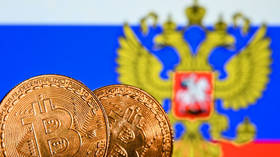The sexual abuse allegations against Allen, 86, received a new wave of attention last year after HBO released its docuseries “Allen v. Farrow,” which examined Dylan Farrow’s accusation that he sexually assaulted her at the family’s Connecticut country house in 1992. Dylan and her mother, Mia Farrow, participated in the project, walking the filmmakers through the events of that time, including the prosecutor’s decision not to press charges against Allen to spare Dylan the trauma of a trial.
Allen, who has long denied the allegations, called the series a “shoddy hit piece” that “had no interest in the truth.”
“Rifkin’s Festival” is about an ex-film professor and struggling novelist who accompanies his publicist wife to a film festival in Spain (the same one that premiered the movie). The husband (played by Wallace Shawn) only goes to keep an eye on his wife (Gina Gershon) and her flirtations with a hotshot director.
The critic Jessica Kiang reviewed the film for The New York Times after its premiere, and compared it favorably to Allen’s 2019 film “A Rainy Day in New York,” which was dropped by Amazon as scrutiny increased over Dylan Farrow’s allegations and ended up having a limited theatrical run in the United States. (Allen sued Amazon for terminating his four-picture deal; the company settled.)
“‘Rifkin’s Festival’ is far less objectionable,” Kiang wrote, “and though that is praise so faint it needs smelling salts, with latter-day Woody Allen, we must be thankful for small mercies.”
Article source: https://www.nytimes.com/2022/01/28/movies/woody-allen-rifkins-festival-us.html


